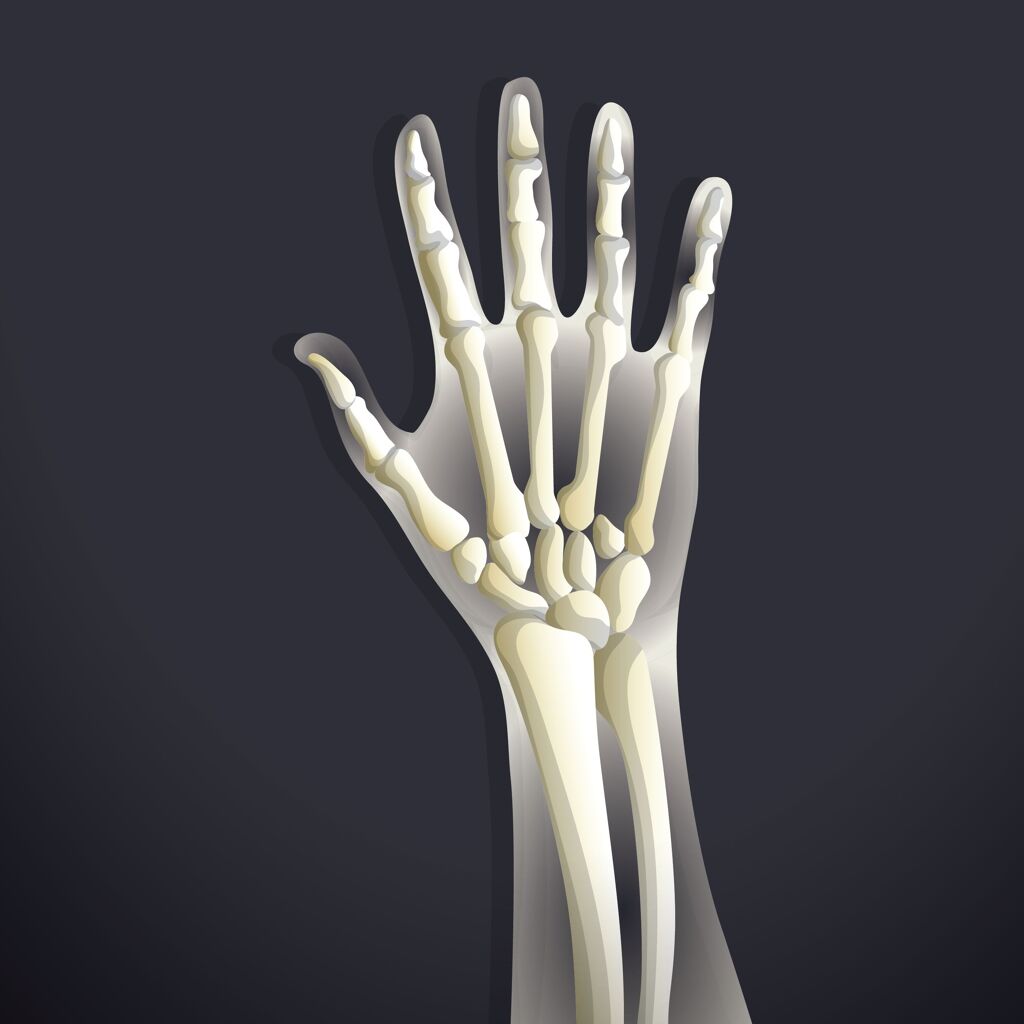Mild Cognitive Impairment

Do you ever have trouble remembering something or thinking through a complex issue? Do you sometimes forget important dates or make mistakes when you shouldn’t? Maybe you are experiencing mild cognitive impairment, which is cognitive decline that can happen with aging.
If mild cognitive impairment is an issue that interferes with your day-to-day life and negatively affects your life, then read on for more info and help!
In this blog on mild cognitive impairment or MCI, you will learn:
- What is MCI and its symptoms
- What are the root causes of MCI
- How Functional Medicine can help address MCI
- What solutions are available to you to reduce or eliminate MCI
WHAT IS MILD COGNITIVE IMPAIRMENT OR MCI?
MCI is memory or cognitive/ thinking problems that start as a person ages. MCI is a mild, but still noticeable, change in memory and thinking skills. A person with MCI has more issues with cognition and memory than their age indicates they should.
Mild cognitive impairment is actually an early symptom of dementia. It lies somewhere between normal age-related changes in cognition and dementia.
Aging and cognitive decline are somewhat inevitable in many cases. It happens along a spectrum from normal aging to mild cognitive impairment to dementia and Alzheimer’s disease (Khine WT, 2020). MCI is not as severe as Alzheimer’s disease or dementia. For example, someone with MCI does not experience the personality changes that can happen with Alzheimer’s. Someone with MCI can still take care of themselves and carry out normal daily activities.
Some Facts on MCI (Anderson, 2019):
- The prevalence of MCI increases with age. MCI affects 10-15% of the population over the age of 65 (Anderson, 2019).
- A diagnosis of mild cognitive impairment is a risk factor for later developing dementia (Reynolds GO, 2021).
- 15% of people with MCI older than 65 develop dementia within 2 years of the initial MCI diagnosis (Anderson, 2019).
- But the progression from MCI to dementia to Alzheimer’s is not automatic. Approximately 14%-38% of people with MCI return to their normal cognition level (Anderson, 2019).
- The rate of decline and outcome in someone with mild cognitive impairment depends on the underlying cause of the MCI.
WHAT ARE THE EARLY SIGNS OF MCI?
One of the first signs of cognitive decline is difficulty with planning or solving problems. A person with MCI may have trouble following a familiar recipe or keeping track of monthly bills. They may have difficulty concentrating and take much longer to do things than they did before.
Other signs of MCI include:
- Losing things often
- Forgetting to go to events or appointments
- Having more trouble finding words than other people of the same age
- Losing train of thought or struggling to follow a conversation
- Difficulty following the plot of a book or movie
- Finding it hard to make decisions, finish a task or follow instructions
- Difficulty navigating around familiar places
- Having poor judgment
- Having family and friends notice any of these changes
Symptoms of MCI may be stable for years. It can also improve over time or it may progress to dementia or Alzheimer’s disease.
Catching MCI early is best to avoid it developing into worsening cognition. With early intervention at the Mild Cognitive Impairment or mild dementia stages, further decline can be prevented and a person can maintain a good quality of life (Blackman J, 2020).
There is currently no pharmaceutical medication for cognitive decline. The medications that exist can only slow the process of cognitive decline but cannot reverse it.
But there are non-pharmaceutical therapies and Functional Medicine to help prevent and even reverse cognitive decline (Khine WT, 2020). Sometime a general health condition, such as sleep deprivation, can be causing the cognitive decline. Identifying and resolving the underlying cause of MCI can dramatically improve cognition.
What is Healthy Cognition?
Healthy cognition is the ability to think clearly and sharply, to solve complex problems, to learn new things and remember, to have sound judgement and language skills. A healthy brain performs all these mental processes collectively called cognition. It can be called ‘mental sharpness’. Aging with healthy cognition means living to an advanced age with an alert mind and a good memory.
WHAT ARE THE CAUSES OF MCI?
There is no single cause of MCI. Common causes could be:
- A degenerative brain disease, such as Alzheimer’s disease
- Conditions such as stroke or other vascular disease, diabetes, a traumatic brain injury or depression can increase risk of MCI
- Side effect of a medication
- An underlying health problem, such as sleep deprivation or gut issues
Which Health & Lifestyle Factors affect Cognitive Health?
Sleep
Sleep is very important for brain health. Sleep problems can cause cognitive decline and probably accelerate Alzheimer’s disease progression.
- Sleep disorders are common in people with memory problems. Sleep disorders affect about 60% of patients in memory clinics (Blackman J, 2020).
- Sleep has a large impact on brain connectivity. This is how different regions of the brain communicate and coordinate with each other. Memory reinforcement happens during sleep. The neural pathways that form memory are strengthened during sleep. Sleep deprivation, for whatever reason, harms this process and overall memory function.
- Disrupted sleep is an early symptom in cognitive decline. It starts even before other symptoms become apparent (Blackman J, 2020).
Too little sleep interferes with beta amyloid in the brain. Beta amyloid typically gets cleared out of the brain during sleep. Under chronic sleep deprivation, beta amyloid in the brain can form into amyloid plaques. Amyloid plaques can lead to plaque deposits. Beta amyloid plaque deposits damage cognition, can lead to neurodegeneration and is a key attribute seen in Alzheimer’s disease (Blackman J, 2020).
How quickly cognitive decline happens is related to the severity of sleep problems. It takes 10-20 years for cognitive decline to develop into full dementia or Alzheimer’s disease. If caught early, 10-20 years is a long time in which to prevent cognitive decline.
It is best to catch cognitive decline at the stage of Mild Cognitive Impairment or even mild dementia (Blackman J, 2020). But it’s even better to catch it earlier at the stage of insomnia or disturbed sleep.
The Gut-Brain Axis
The gut and brain are linked via the gut-brain axis. Gut issues, such as dysbiosis, affect the brain and can cause cognitive problems.
- MCI can be an early and leading symptom of Alzheimer’s disease. Alzheimer’s is characterized by systemic and gut inflammation. Alzheimer’s patients have more inflammation-promoting bacteria, which are directly associated with their cognitive issues (Grabrucker S, 2023).
- Harmful gut bacteria can cause systemic inflammatory reactions. These harmful gut bacteria secrete toxic molecules called LPS. LPS increase inflammation. LPS can damage the blood-brain barrier to create neuroinflammation and/or neurodegeneration. LPS are caused by an imbalance in gut bacteria and may eventually cause or intensify neurodegeneration (Li B, 2019).
- People with MCI and Alzheimer’s disease have less gut bacteria diversity (Li B, 2019). In research, a change in cognitive function in MCI patients led to changes in specific gut bacteria amounts (Khine WT, 2020). For example, certain strains of gut bacteria were seen as risk factors for developing MCI (Khine WT, 2020).
- Amyloid plaque formation, seen in Alzheimer’s disease, may be triggered by changes in the gut microbiome, during the MCI stage of cognitive decline (Li B, 2019).
- In the guts of Alzheimer’s patients, there is less bacteria that make butyrate (Grabrucker S, 2023). Butyrate is anti-inflammatory and strengthens the intestinal barrier function, protecting against leaky gut. Having less of these butyrate-producing bacteria is associated with amyloid plaque accumulation (Grabrucker S, 2023).
Inflammation
Inflammation can start in the gut, or anywhere else in the body. Chronic or systemic inflammation anywhere in the body can develop into neuroinflammation in the brain. Neuroinflammation is involved in brain health issues, depression, dementia, Alzheimer’s and other neurological conditions. It is crucial in any health condition to remove inflammation and all sources of inflammation, wherever they may be in the body.
Exercise
Exercise can help prevent cognitive decline and lessen MCI in older adults (Nuzum H, 2020).
- Exercise increases brain-derived neurotrophic factor (BDNF), which stimulates cell growth and maintains neurons. Increasing BDNF improves new brain cell growth, which improves memory (Nuzum H, 2020).
- Physical activity also helps brain health because it reduces cardiovascular risk factors. Type 2 diabetes, high blood pressure, high cholesterol or obesity are all risk factors for heart disease. In people with MCI, having these conditions (the cardiovascular risk factors) increases chances of getting dementia. All of these conditions are part of metabolic syndrome, which is now known to include dementia and Alzheimer’s (Nuzum H, 2020).
To Read About Blog Topic, Scroll Down
Want To Work With Our Clinic?
Do you have a chronic or mystery illness that no one has been able to help you with? Are you simply wanting to re-connect with a healthier version of yourself? It’s Time To Finally Feel Better!
How can we Preserve Healthy Cognition, Prevent its Decline and be more Proactive in Preventing MCI, Dementia or Alzheimer’s?
There is no effective medication for mild cognitive impairment. What does work is lifestyle modifications like exercise, diet, cognitive training and reducing cardiovascular risk factors (Reynolds GO, 2021).
To maintain cognitive function and optimal health, first get the basics right:
- Increase exercise, movement and physical activity. All types of physical activity improve cognitive ability and quality of life. But moderate-intensity physical activities have been found to support cognitive function more than walking exercise and high-intensity physical activity (Alsubaie SF, 2020).
- Eat an anti-inflammatory diet like the gluten-free Mediterranean diet. Focus on a healthy, whole foods diet with a wide variety of fruits and vegetables.
- Don’t drink large amounts of alcohol. Alcohol is toxic to the liver and brain.
- Be social with friends and family. Do not isolate as loneliness is a risk factor. Stay socially active.
- Exercise the mind. Read. Have stimulating conversations. Do puzzles or play challenging games like chess and memory training.
- Minimize risk of head injury. A brain injury damages cognitive function and memory abilities.
- Don’t smoke.
- Manage any health conditions such as diabetes, high blood pressure, high cholesterol, obesity or depression.
Extra steps to take that protect cognitive function:
Diet
Certain foods speed up cognitive decline (Grant WB, 2023). These include ultra processed foods, refined carbohydrates, sugar-sweetened beverages and fruit juice (Grant WB, 2023). All of these are inflammatory for the brain, which damages cognitive health. These foods increase inflammation, insulin resistance, oxidative stress and homocysteine (Grant WB, 2023).
Foods that support cognitive health are brightly colored veggies, legumes, nuts, garlic, leafy greens and coffee (Grant WB, 2023).
- Polyphenols, a category of molecules found in foods, are good for the brain. They protect against neuroinflammation. They maintain synaptic plasticity of neuronal networks in the brain. Polyphenols help cerebral blood flow and prevent mitochondrial dysfunction. This helps learning and good cognition.
- Interestingly, the anti-inflammatory effect of polyphenols happens through the regulation of the gut microbiome (Godos J, 2023).
- Anthocyanins and flavones are the two flavonoids most important for brain health (Godos J, 2023).
- Anthocyanins are associated with a 27% lower risk of cognitive issues. They are in red to purplish blue-colored plants such as berries, currents, grapes, some tropical fruits, radishes, red potatoes, red cabbage, purple sweet potatoes, black carrots and black beans. Their anti-neuroinflammatory activity involves several mechanisms, including a decrease in inflammatory markers (Godos J, 2023).
- Flavones show a 23% lower risk of cognitive decline (Godos J, 2023). Flavonols fight oxidative stress and neuroinflammation and inhibit beta amyloid plaque accumulation. They are in tea, celery, parsley, red peppers, chamomile, mint, tomatoes, apples, artichokes and kumquats.
- Other polyphenols like lignans and phenolic acids also protect cognition. Phenolic acids are in nuts, apple, coffee and tea. In fact, walnuts, coffee and tea are associated with lower odds of cognitive decline (Godos J, 2023).
- Phenolic acids can pass through the blood-brain barrier and act directly on the brain. They have antioxidant and anti-inflammatory properties. They can inhibit pro-inflammatory cytokines production and inhibit the accumulation of beta amyloid plaque seen in dementia and Alzheimer’s disease (Godos J, 2023).
To get more flavonoids and polyphenols in the diet, eat fruits, vegetables, herbs, spices, seeds, nuts, legumes and whole grains. Drink moderate amounts of coffee and tea. Variety is important. Eat a wide range of natural whole plant foods to get a mix of as many polyphenols (and other nutrients) as possible.
Improve Gut Health
MCI and Alzheimer’s are associated with abnormal inflammation in the brain and the gut. Negative changes in gut bacteria can shift the gut towards a pro-inflammatory stance (Daisukea A, 2022).
- Probiotics can counteract gut inflammation and dysbiosis. Probiotics can improve cognitive and gut issues in patients with Alzheimer’s and MCI through reducing inflammation (Daisukea A, 2022).
- Certain strains of probiotics can help reduce inflammation and prevent, if not outright improve, cognition.
- The probiotic strain Bifidobacterium breve MCC1274 reduces beta amyloid-induced inflammation in mice. In humans, it can improve memory and prevent brain shrinkage linked to inflammation (Daisukea A, 2022).
- Supplementing Bifidobacterium breve MCC1274 can prevent memory impairment, decrease beta amyloid levels, lessen microglial activation (which is inflammatory) and decrease pro-inflammatory cytokines in the brain (Daisukea A, 2022).
Practice Mindfulness & Cognitive Training
Mindfulness is staying in the present moment. It can positively affect mood, quality of life and cognition among adults.
- Mindfulness and cognitive training can delay cognitive decline, especially in the early disease stages (Reynolds GO, 2021).
- Regular and frequent mindfulness practice can change the quantity and type of gut bacteria, through the gut-brain axis (Khine WT, 2020).
Cognitive training is brain training to strengthen cognitive skills.
- It improves neuroplasticity. Neuroplasticity refers to the neural connections in the brain.
- It is the brain’s ability to learn and adapt. Building new neural pathways improve the brain’s ability to process information.
- With strong neuroplasticity, the brain can form and reorganize connections.
- The neural networks in the brain can change through growth and reorganization.
It is possible to change and improve the structure of the brain. Brain training can target weak cognitive areas and strengthen them. Neural pathways can grow and change throughout adulthood if supported properly.
To Improve Cognition:
- Manage stress. The brain needs time off. End your work day and don’t let the work stress go on.
- Learn new vocabulary words. Learning one new word every day can exercise the neural pathways.
- Use the ‘wrong’ hand. Non-dominant hand exercises form new neural pathways and strengthen connectivity between existing neurons. If you’re right-handed, brush your teeth with your left hand. Try it while balancing on one leg for a double neuroplasticity bonus.
- Learn to juggle. Juggling improves neuroplasticity.
Improve Sleep
Get sleep problems under control. Sleep is an early indicator of memory and cognition problems later in life. Practice good sleep hygiene and manage any sleep problems. Test for sleep apnea if you have problems sleeping. Turn off screens in the evening. Try melatonin, calming herbs, aromatherapy and good sleep hygiene. Avoid stimulants like tea or coffee, or alcohol, before bed.
Try New Things
Start a new hobby, learn a new language. It’s even better if it’s social and involves movement as well. For example, dance therapy can stimulate neuroplasticity (Huang CS, 2023). In research, dance therapy significantly improves cognitive function, memory, attention, language and mental health in people over 55 years old with MCI (Huang CS, 2023). Dance therapy stimulates learning and remembering complex motor movements, following instructions, executing complex movement patterns, integrating visual and rhythmic movements (Huang CS, 2023).
This is all done in a social setting that reduces social isolation, loneliness and depressed mood and involves physical activity (Huang CS, 2023).
SUMMARY
- MCI is memory or cognitive/ thinking problems that start as a person ages. A person with MCI has more issues with cognition and memory than their peers of the same age do.
- Mild cognitive impairment is actually an early symptom of dementia. It lies somewhere between normal age-related changes in cognition and dementia.
- A first sign of cognitive decline is difficulty with planning or solving problems. A person with MCI may have difficulty concentrating and take much longer to do things than they did before.
- Symptoms of MCI may be stable for years. It can improve over time. Or it may progress to dementia or Alzheimer’s disease.
- Catching MCI early is best to avoid it developing into worsening cognition.
- There is currently no pharmaceutical medication for cognitive decline. The medications that exist can only slow the process of cognitive decline but cannot reverse it.
- In this case, lifestyle factors are important. The possible triggers of MCI include poor sleep, gut problems, chronic or systemic inflammation and a sedentary lifestyle.
- Non-pharmaceutical therapies and Functional Medicine can help prevent and even reverse cognitive decline (Khine WT, 2020).
- Get the health basics in place first. Then concentrate on getting enough sleep, improve gut health, reduce inflammation, exercise. Eat loads of fruit & vegetables for the polyphenols, favonols and other brain-supportive nutrients. Practice mindfulness & cognitive training. Learn new skills like a new language or to play chess. Take up new hobbies like dancing. The best is things that incorporate learning with physical activity and a social setting.
** Follow us for our next Blog on the Functional Medicine approach to Chronic Disease **
As always, please get in touch with us. If you or someone you know is struggling with cognitive issues, contact our clinic today. We can work on any issue(s) and improve your health. Book a free health evaluation call with us today, to see how we can help you with your concerns. We can answer your questions and help you book an initial consult with one of the functional medicine doctors in our clinic.











